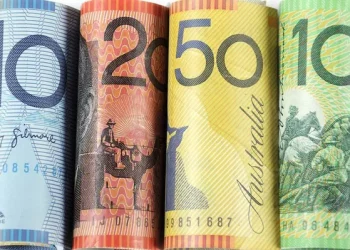The dynamics of currency exchange rates play a crucial role in the global economy, affecting trade, investments, and travel. One such pair that attracts attention is the Indian Rupee to Thai Baht exchange rate. As of the latest update, the current exchange rate stands at 1 Indian Rupee (INR) to 0.41 Thai Baht (THB). In this article, we will delve into the factors influencing this exchange rate and provide a comprehensive analysis to help readers understand the economic implications.
Current Exchange Rate Analysis
Historical Perspective
To understand the present, it’s essential to look at the past. The Indian Rupee to Thai Baht exchange rate has undergone fluctuations over the years. A historical analysis reveals patterns influenced by economic indicators, geopolitical events, and global market trends. The current rate reflects a delicate balance between the two economies and their positions in the international market.
Economic Indicators
The exchange rate is a reflection of the economic health of the respective countries. For India, factors such as GDP growth, inflation rates, and the balance of trade contribute to the valuation of the Indian Rupee. Similarly, Thailand’s economic indicators, including export performance, foreign direct investments, and political stability, influence the Thai Baht. A meticulous analysis of these factors provides insights into the current exchange rate.
Trade Relations
India and Thailand share robust trade relations, contributing significantly to the exchange rate dynamics. The volume of bilateral trade, trade policies, and trade imbalances impact the demand for each other’s currencies. Any changes in trade agreements, tariffs, or economic collaborations can have a direct correlation with the Indian Rupee to Thai Baht exchange rate.
Monetary Policies
The monetary policies pursued by the Reserve Bank of India (RBI) and the Bank of Thailand are instrumental in shaping the exchange rate. Interest rates, money supply, and currency intervention strategies are key elements that investors and traders closely monitor. An understanding of these policies is crucial for predicting future trends in the Indian Rupee to Thai Baht exchange rate.
Global Economic Factors
In an interconnected world, global economic conditions play a pivotal role in determining currency values. The strength of major currencies like the US Dollar, Euro, and Chinese Yuan can have a ripple effect on the Indian Rupee to Thai Baht exchange rate. Geopolitical tensions, oil prices, and international trade agreements further contribute to the complexity of the exchange rate scenario.
Tourism and Remittances
Tourism and remittances are integral components influencing the exchange rate between India and Thailand. A thriving tourism industry and a substantial number of expatriates can create a demand for the Indian Rupee in Thailand, impacting the exchange rate. Understanding the patterns of tourist inflow and remittance trends provides valuable insights into the currency dynamics.
Impact of COVID-19
The global COVID-19 pandemic has left an indelible mark on economies worldwide, and India and Thailand are no exceptions. The economic fallout, disruptions in trade, and changes in consumer behavior have repercussions on the Indian Rupee to Thai Baht exchange rate. An analysis of the pandemic’s impact on both countries’ economies provides context to the current exchange rate.
Investor Sentiment
Investor sentiment and market speculation play a crucial role in short-term fluctuations of exchange rates. Traders and investors closely watch geopolitical events, economic releases, and central bank statements for cues. Understanding the sentiment in the financial markets is essential for predicting short-term movements in the Indian Rupee to Thai Baht exchange rate.
See Also: Current INR Exchange Rate – Indian Rupee to Nepalese Rupee
Currency Exchange Market Trends
The currency exchange market operates 24/7, and trends can change rapidly. Market participants, including banks, financial institutions, and retail traders, contribute to the liquidity and volatility of the market. Analyzing recent trends and trading volumes provides a real-time perspective on the Indian Rupee to Thai Baht exchange rate.
Conclusion
In conclusion, the Indian Rupee to Thai Baht exchange rate is a dynamic metric influenced by a myriad of factors. A comprehensive understanding of economic indicators, trade relations, monetary policies, global economic conditions, tourism, and investor sentiment is crucial for accurately assessing the current rate and making informed predictions. As we navigate the complex landscape of international finance, staying informed about the factors discussed in this article will empower individuals and businesses to make strategic decisions in the realm of currency exchange.
Related Topics:
The Highest Euro to INR Exchange Rate
Euro to Rupees: Factors Affecting It
Understanding the GBP to Rupee Currency Conversion

























